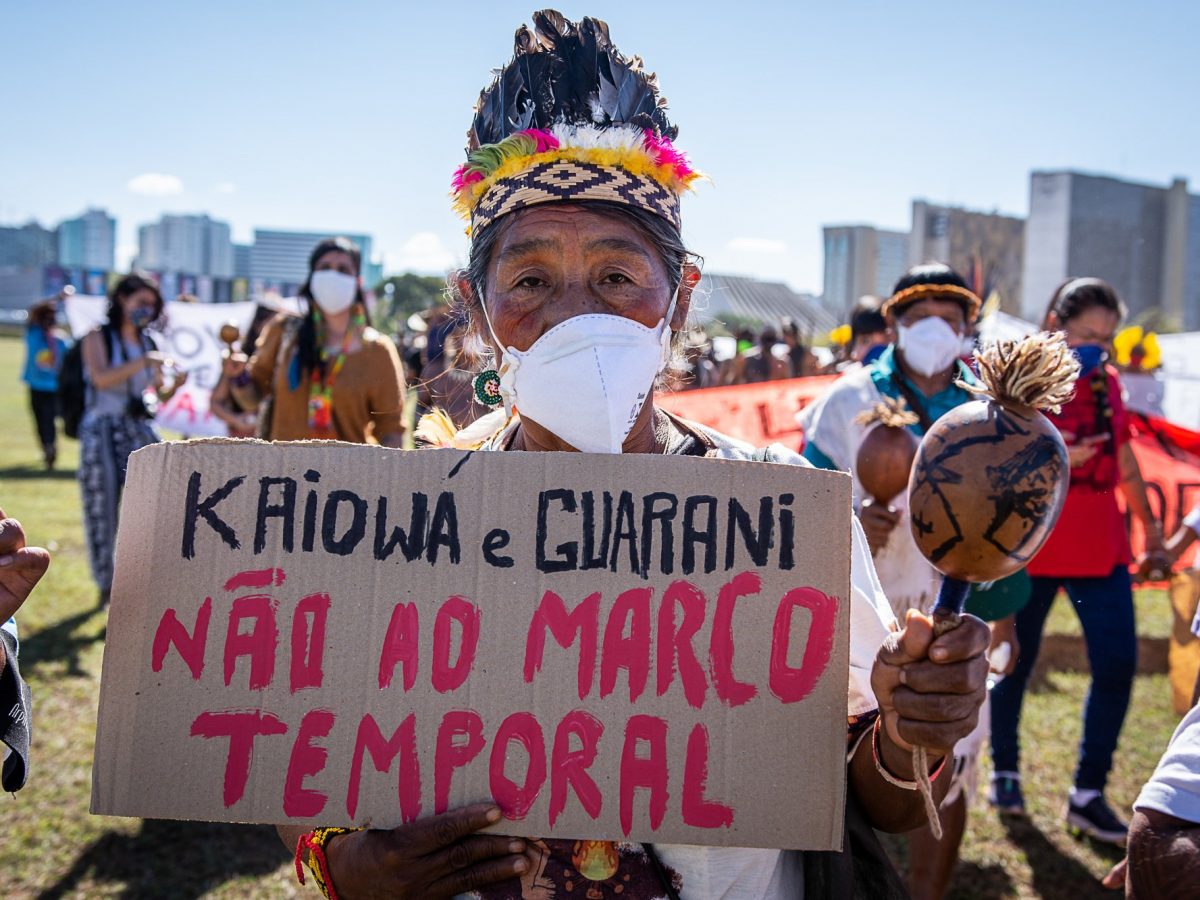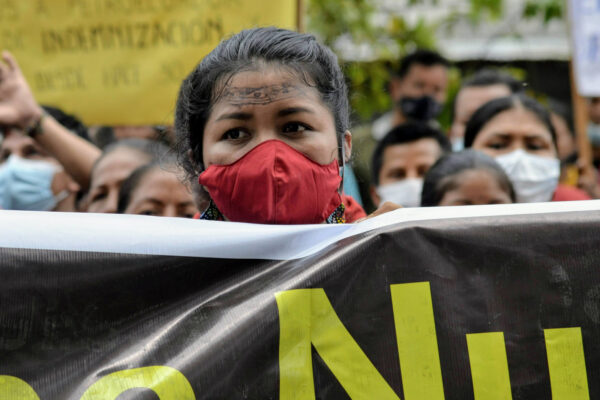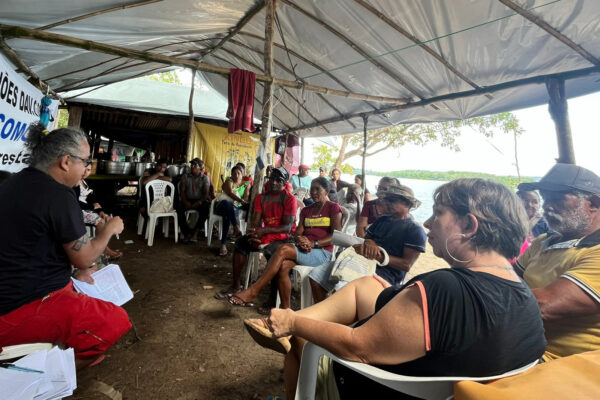“We know it is a risk for us to gather in the middle of the pandemic. But we have no choice. Either we protest, or we perish. And so we protest.”
Kretan Kaingang, an executive coordinator of the Association of Brazil’s Indigenous Peoples (APIB)
This week, Indigenous peoples from across Brazil are assembling in Brasília for a national demonstration they have named the Struggle for Life Camp. This is the second national Indigenous gathering taking place in the capital of Brazil this year. As they did this past June, Indigenous groups from the five regions of the country will set up camp in the heart of Brasília, in the center of the capital’s federal ministry complex, to insist that their existence and voice be recognized and respected by federal authorities and institutions.
Our present climate emergency requires urgent collective action. Sectors that openly defend anti-Indigenous agendas – such as the most reactionary forces of the agribusiness and mining sectors – are playing an ever more unambiguous and prominent role in defining the course of Brazilian national politics. These sectors have always wielded political power in Brazil, but today they openly govern alongside President Bolsonaro.
Legalizing theft: The “marco temporal” and the end of Indigenous land rights
One of the central goals of the Struggle for Life Camp is to mobilize against the attacks on Indigenous land rights that are being rammed through Congress and the judiciary. In the past decades, self-interested actors seeking to limit Indigenous land rights have been trying to sneak new restrictive norms and interpretations into the legal system. Today, their influence is stronger than ever. Agribusiness, the mining sector, land grabbers, the timber sectors and their political allies in the Bolsonaro administration, Congress, and the judiciary are all united in their efforts to bring into the legal system the so-called “marco temporal,” which is a patently unconstitutional time restriction clause and a “time limit trick” that severely weakens the constitutional rights of Indigenous peoples to their land.
According to the “time frame” (marco temporal) clause, the Indigenous right to lands that were not physically occupied in 1988 – the year of when the latest Brazilian Constitution was adopted – will only be recognized if the Indigenous group can prove that they were actively and continuously resisting the theft of their land by, for instance, fighting back against land encroachers or defending their possession through litigation. This ignores the centuries of violent displacement of Indigenous peoples from their lands and their subsequent exclusion from engaging in legal and political acts up until 1988.
The Xokleng case: Redefining the relationship between the government and Indigenous peoples
On August 25, a landmark case is set to resume on the marco temporal before the Brazilian Federal Supreme Court (STF). The outcome of the Xokleng case will define the legal status of the marco temporal clause, and, consequently, the future of Indigenous land rights in Brazil. The stakes are extremely high, and this is why, despite the attempts by state authorities to keep the Struggle for Life Camp from taking place, the Indigenous movement insists on assembling in the capital.
The case under appeal refers to the territorial dispute between the Xokleng Peoples and the State of Santa Catarina in which the state is using the marco temporal restriction argument to argue that the Ibirama La-Klãnõ Indigenous Land – inhabited by Xokleng, Kaingang, and Guarani Indigenous groups – is not Indigenous land. After enduring violent displacement from settler-colonists in their traditional lands throughout the twentieth century, the surviving families and groups held onto their traditional territories, although greatly reduced in size. In 2003, the Federal Minister of Justice recognized the Ibirama La-Klãnõ Indigenous Land with the extension of 37,108 hectares, thus providing redress for a small fraction of the land invasions and encroachments that have affected the Xokleng for over a century.
Due to the marco temporal clause, this land extension is threatened as are the over 245 Indigenous land demarcation processes that still need to be concluded by Brazil’s National Indigenous Foundation (FUNAI). Even the Indigenous lands whose demarcation process has been concluded are not safe from the marco temporal clause. If it is sanctioned, Indigenous lands that have been fully recognized by the state will be reopened, revised, and annulled.
The Federal Supreme Court now has the opportunity to stop the marco temporal clause for good by declaring it unconstitutional. Doing so would hinder it from being used in other legal disputes involving Indigenous territorial rights and block the approval of the marco temporal clause via a federal bill.
The struggle to protect the Amazon is global
Given the stark realities highlighted by the latest report from the UN International Panel on Climate Change (IPCC), listening to and centering Indigenous knowledge is crucial if we are to go toward the best-case scenario for our climate. Our planet’s path forward to this goal depends on Indigenous peoples of the Amazon protecting their territories from further degradation. This legal assault on their land rights can profoundly affect us all if gone unchecked.
With your solidarity and support, Brazil’s Indigenous movement will remain strong and fight to eliminate this barrage of threats. We cannot let these policies carry on without massive uproar and protest against them. We need your voice to denounce the unconstitutionality of the marco temporal and what the Xokleng case means for the Amazon and our Earth.
The Struggle for Life Camp might be in Brasilia over the next week, but the struggle must be carried by us all because there is no climate future without the Amazon and its Indigenous defenders. Join us in defending Indigenous land rights!














